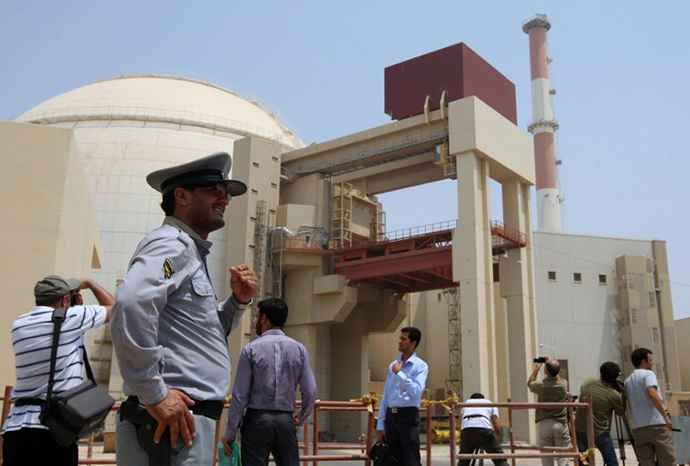Anonymous ops ‘a new front in protest’
Anonymous DDoS attempts are a way to raise global awareness for rights and freedom issues, former MI5 agent Annie Machon told RT. The real cyber-terrorism is happening on a state level, taking such forms as the Stuxnet virus, she said.
Anonymous hacktivist group on Sunday launched a massive cyber-attack dubbed #OpIsrael, and claimed to have taken down hundreds of Israeli websites. The sites that reportedly crashed included the web pages of the Israeli Defense Ministry and Knesset, as well as some Israeli branches of major companies.
But according to Machon, such actions should not be considered hacking attacks, rather a form of a mass-scale protest against the state-level clampdown on freedoms.
RT:Are cyber-attacks an effective way to protest? Do
many people really pay much attention to them?
Annie Machon: Well obviously they do, I mean this is getting
worldwide headlines, and I think this is a new front in protest in
the sense that there’s been such crackdown across many countries,
including across the West now, against people who take to the
streets to protest an issue. If you can do it over cyberspace, you
get global awareness of what you’re doing, and the message you’re
trying to put out. And this is precisely what Anonymous has
achieved, with this publicized assault against certain Israeli
websites.
Let’s not call them attacks: they are distributed denial of service
attempts against certain countries and certain websites. So what
we’re seeing here is a sort of automated mass influx into certain
websites that cause them to crash. So they’re not trying to steal
anyone’s information, they’re not trying to get your bank details
or anything like that. What they’re just trying to do is make the
websites of certain governments and big organizations crash, so
that people can be aware that there is an issue here that needs to
be addressed.
RT:Do attacks like this pose any real threat, beside the inconvenience caused by downed websites?
AM: It’s very much matter of inconvenience to the websites that are under assault, but of course it does get a lot of publicity. The difference between this and real hacking, real cyber-attacks, can be seen very stark in what happened when the US and the Israeli governments committed an act of cyber-terrorism when they attacked the Iranian nuclear production facilities when they released the Stuxnet virus.
We have Western governments colluding to attack the infrastructure of another sovereign country, which is not deemed to be a threat by those governments. From a 2007 National Intelligence Estimate called together by all the American intelligence agencies… Iran was not trying to develop a nuclear weapons capability. And yet the US and Israel both used Stuxnet to try and attack their nuclear facilities, knowing they weren’t a threat.
So that is cyber-terrorism, that is what a real cyber-attack looks like. And of course, it has ramifications now, because the Stuxnet virus went out to attack these precise facilities, but it’s now out there in the world, it can be used, and abused, and mutated by real cyber-criminals out there. So what the US and the Israeli governments did with the Stuxnet is likely far more damaging than any of the protest movement trying to bring down certain websites in certain countries.
RT:With American and European governments increasingly trying to legislate cyberspace, could we soon see mass clampdowns on perpetrators of such attacks?
AM: Absolutely. We’ve seen over the last decade many attempts legally to put new laws in place that will stop the freedom of expression, our right to ingest information over the internet. There’s been many assaults by the Western governments, usually in the name of trying to protect copyright, or stop piracy on the internet. But of course once you get those laws in case to do that, these laws can be further abused by intelligence agencies.
So we have a whole range of nasty laws, undemocratically foisted on countries: CISPA, SOPA, ACTA. And also things like the illegal arrest: it’s what’s done FBI, illegal arrest of Kim Dotcom in New Zealand, to take down his site Megaupload in order to officially protect copyright, but actually to stifle the free flow of information on the internet.
So I think the governments are very aware of this potential threat, and it’s almost like an arms race to try and take away our freedoms, and we need to push back and assure that we keep the freedom that had been hard won over the last 500 years.

The statements, views and opinions expressed in this column are solely those of the author and do not necessarily represent those of RT.
The statements, views and opinions expressed in this column are solely those of the author and do not necessarily represent those of RT.













